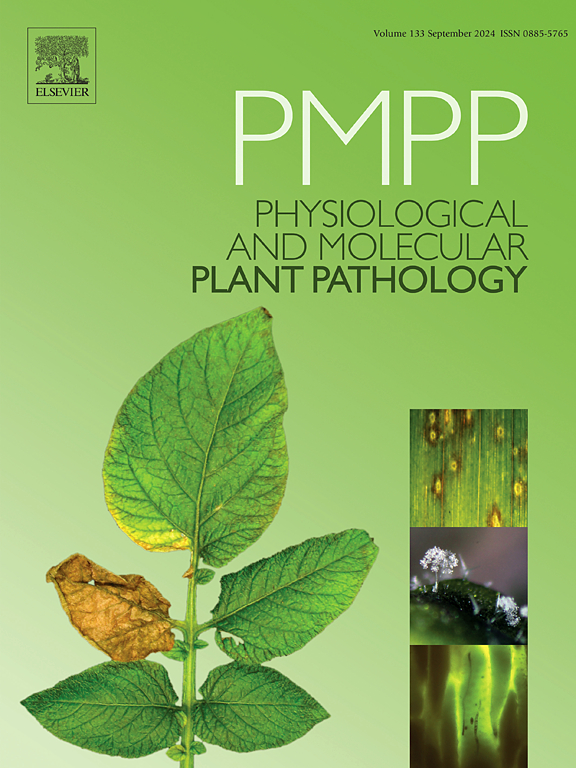Molecular screening of diverse Tomato germplasm for root-knot nematode resistance using the Mi23 marker
IF 2.8
3区 农林科学
Q2 PLANT SCIENCES
引用次数: 0
Abstract
Tomato (Solanum lycopersicum L.), an important vegetable and horticultural crop, provides significant health benefits. The quality and yield of tomato plants are drastically impacted by root-knot nematode (RKN) a group of obligate parasites. In the current study, 212 tomato genotypes collected from diverse geographical regions, including Türkiye, France, Taiwan, and others, were molecularly screened using the Mi23 primer pair (Mi23-F/Mi23-R) to detect the presence of the Mi-1.2 resistance gene. The results of the molecular screening revealed that a total of six genotypes: three homozygous genotypes, Romitel-RHT 3 (France), AVTO0102-CLN2366B, and AVTO0101-CLN2413D (Taiwan), and three heterozygous genotypes, Aysbars-F1, Italian Field (To-23), and Red Pole (To-25) (Türkiye) amplified with a required band size of 380 bp. Notably, 206 genotypes including those from the USA Germany, and Kyrgyzstan, lacked the Mi-1.2 resistance gene, exhibiting susceptibility to RKN. These findings highlight the significance role of molecular markers in identifying and utilizing nematode-resistant genes to enhance tomato breeding programs for robust and disease-resistant cultivars.
利用Mi23标记对不同番茄种质抗根结线虫的分子筛选
番茄(Solanum lycopersicum L.)是一种重要的蔬菜和园艺作物,具有显著的健康益处。根结线虫(root-knot nematode, RKN)是一类专性寄生虫,严重影响番茄植株的品质和产量。本研究采用Mi23引物对(Mi23- f /Mi23- r)对收集自法国、台湾等不同地理区域的212个番茄基因型进行分子筛选,检测是否存在Mi-1.2抗性基因。分子筛选结果显示,共有6个基因型,其中纯合子基因型Romitel-RHT 3(法国)、AVTO0102-CLN2366B和AVTO0101-CLN2413D(台湾)和杂合子基因型Aysbars-F1、意大利Field (To-23)和Red Pole (To-25) (trkiye)扩增出所需条带大小为380 bp。值得注意的是,包括美国、德国和吉尔吉斯斯坦在内的206个基因型缺乏Mi-1.2抗性基因,对RKN敏感。这些发现强调了分子标记在鉴定和利用抗线虫基因方面的重要作用,以加强番茄健壮和抗病品种的育种计划。
本文章由计算机程序翻译,如有差异,请以英文原文为准。
求助全文
约1分钟内获得全文
求助全文
来源期刊
CiteScore
4.30
自引率
7.40%
发文量
130
审稿时长
38 days
期刊介绍:
Physiological and Molecular Plant Pathology provides an International forum for original research papers, reviews, and commentaries on all aspects of the molecular biology, biochemistry, physiology, histology and cytology, genetics and evolution of plant-microbe interactions.
Papers on all kinds of infective pathogen, including viruses, prokaryotes, fungi, and nematodes, as well as mutualistic organisms such as Rhizobium and mycorrhyzal fungi, are acceptable as long as they have a bearing on the interaction between pathogen and plant.

 求助内容:
求助内容: 应助结果提醒方式:
应助结果提醒方式:


